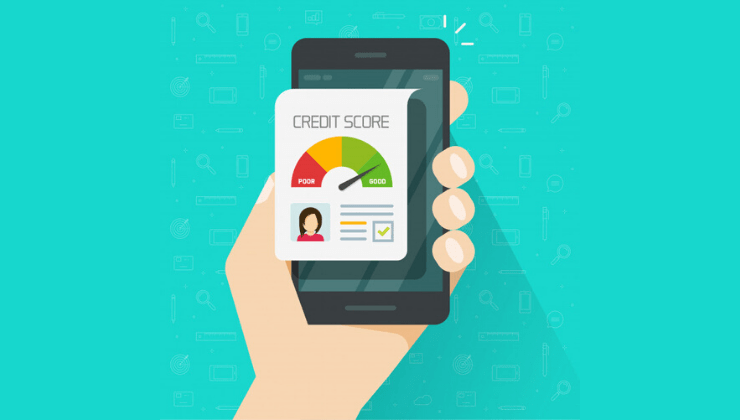
Most people know the importance of having good credit, but only a few realize just how important credit really is. Credit is the key foundation for personal financial planning.
A line of credit gives you leverage to purchase big-ticket items and allows you to make a number of investment choices.
A credit score of 700+ means you will enjoy better rates on car insurance, increase your chances of getting approved for a mortgage, and even improves your chance of getting that dream job you always wanted.
You might find yourself asking when the right age is to start building your credit. In actuality, starting young is a very good plan.
Working towards building a superior credit history in your late teens ensures that you’ll be financially stable and comfortable all throughout your adult life and quite possibly could enjoy an early retirement.
So can you, a 17-year old high school senior, get started? By learning the basics and working your way up, the simple answer is yes!
What is a Credit Score and why is it important?
You may have already picked up on what a credit score is from the introduction, but here is more of a breakdown for easier understanding. A credit score essentially determines your creditworthiness. It can range between 300 and 850.
Scoring a perfect 850 signifies you have an excellent credit rating, while 700+ is considered good. Scores at the lower end of the spectrum, so approximately 570 and below, will classify you as a subprime borrower.
Many financial institutions in the United States use the credit score model created by the Fair Isaac Corporation, also known as FICO.
The FICO rating system looks at multiple factors when determining an individual’s credit score. These factors include, but are not limited to:
- Repayment history
- Types of loans
- Length of credit history
- Total debt
There are also financial actions that can cause your credit score to rise or fall. I will go more into this in the next section.
Why do YOU need a Good Credit Score?
The average FICO score range is often used to determine your creditworthiness, although every creditor or lender can define its own ranges for credit scores.
- Excellent: 800 to 850
- Very Good: 740 to 799
- Good: 670 to 739
- Fair: 580 to 669
- Poor: 300 to 579
Lenders examine credit scores to evaluate the probability that an individual will repay loans in a timely manner. Your credit score plays a crucial role in a lender’s decision to offer you a line of credit.
It directly affects how much or how little interest you might pay for any lines of credit you take out.
At the beginning of the section, a subprime borrower was defined as someone with a credit score below 570.
Subprime borrowers are regarded as carrying higher risk than say someone who has a 770 for a credit score. Consequently, they’re charged with higher interest rates or may require a shorter repayment term.
Some financial institutions may even require a co-signer when a subprime borrower takes out a loan.
How Credit Score is calculated?
The FICO rating system doesn’t reveal the exact formula it uses due for proprietary reasons. But what is known are the specific components involved in the calculations.
Payment history (35%)
This category looks at whether you have paid your credit accounts consistently and on time.
Previous bankruptcies, collections, and delinquencies are also factored into payment history. The size of these problems, the time it took to resolve them and how long it has been since the problems appeared are all scrutinized.
The more payment issues you have in your credit history, the lower your credit score will be.
Amount owed (30%)
This is the amount you currently owe relative to the credit you have available.
While the “amount owed” focuses on your current amount of debt, it also looks at all the other accounts that you have open and the specific types of accounts you hold. A large total amount of debt from multiple sources can negatively affect your score.
Length of credit history (15%)
The longer your credit accounts have been open and in good standing, the better it will be for your credit rating.
New credit (10%)
People who apply for credit frequently are a flight risk since this behavior probably indicates financial pressures. If you fit this profile, your score gets dinged with each new credit application.
Type of credit used (10%)
When people continuously apply for the same type of credit, it can indicate to lenders that the borrower may have difficulties in clearing debts, thus resulting in a need to open a number of similar credit types.
Understand that your credit score will only reflect the information found on your credit report.
A potential lender or creditor will look at other factors outside of the credit report when reviewing your loan or home mortgage application, like your current income or length of employment.
What 17-year-old YOU can do to start building Credit
After that crash course on the significance of a credit score, the next step would be to explore ways that you can start building up credit. Below you’ll find a six-point checklist that’s pretty easy to follow.
The first one is a must-do right away, while the rest you can work on as you go along and gain more experience in handling your own finances.
Get a part-time job
The size of a paycheck doesn’t influence your credit score. However, having some form of employment shows that you are reliable.
It demonstrates your ability to earn a steady income, part of which will go to paying bills and other pertinent financial obligations.
Creditors also look positively at people who’ve been with the same company for years. That said, look for a part-time job that provides opportunities for you to move up the corporate ladder.
Open a bank account
A good banking history leads to a strong financial foundation, which is a stepping stone for building a good credit score.
When you receive your first paycheck, use some of it to open your own bank account. Get accustomed to making regular deposits.
In this age of technology, you don’t even have to go to the bank’s actual location to open an account, as most offer online services that you can access via a computer or downloadable app on your phone.
Apart from a savings account, you may also want to look into opening a checking account. Just steer clear of overdrafts or declined debit card charges.
Become an authorized user
Ticking off the first two items on this checklist will surely earn you more than a few cookie points with mom and dad. Maybe enough to convince them to get you a credit card under their account.
Being added as an authorized user on a few credit cards with good standing will give you an instant credit boost.
Maintain a low credit balance
Low credit utilization is another important factor, as it accounts for 30% of your credit score. To expand on the explanation above, a higher utilization indicates you’re taking too much credit card debt and may have trouble paying it off.
Consequently, a lower utilization demonstrates that you are capable of handling your debts and the lender’s confidence in you will grow.
It is recommended to keep your credit card utilization under 30 percent, but it is best if it is under 10 percent.
Put your name on a household bill
Helping around the house could also mean pitching in for some of those household bills. Discuss with your parents about putting the cable bill or phone bill under your name and pay for it yourself.
Even if your parents continue to pay the bill, the fact that it is in your name will benefit you. Payments made under your name will not necessarily show up on your credit report, but they will aid in establishing a record of your payment history.
Pay bills on time
Now that you have a household bill to pay off monthly, make sure you always pay for it on time. The biggest factor in your credit score is how frequently you pay your bills on time.
Keep in mind that payment history accounts for 35% of your FICO Score. Make not missing a payment your number 1 goal as you go through this credit-building journey.
One way to remember your upcoming bills is to set due dates and reminders on your phone. Or better yet, schedule automatic payments from your checking account each month.
Stay on top of your credit
Monitoring your credit score is the best way to stay on top of your credit. Experian, a consumer credit reporting company, and many other similar services allow you to check your credit score for free by accessing it online.
Alternatively, you can check out tracking programs that your bank or credit card issuer might offer. See if any of these are available as an app. I personally check my credit score through the Chase App. It is simple, easy, and works great!
When you watch your score’s progress, you’ll be motivated to keep it moving higher. Regularly monitoring your score also lets you notice right away if and when there are discrepancies (e.g., a drop due to an accidental missed payment).
Have patience
Credit cards and credit scores may seem scary and complicated at first, because they are! It takes a while to get the hang of using them correctly.
When you’re first starting out, you may see your credit score jump around or not grow right away. This is okay.
Eventually, you will figure out what works for you. Check in periodically to see where you’re at and you might even surprise yourself from time to time with how much it has grown. It can be pretty exciting.
Conclusion
You’re never too young to start building a strong credit history. Making the best of your time outside of school and taking responsibility for your personal finances are two of the most important things you can do to start preparing for your financial future.
Landing a part-time job means you have one foot in the door. Develop the habit of budgeting, paying bills on time and saving money for a rainy day. These habits will help put you in a stable mindset as you navigate adulthood.
Following all the tips above will empower you to make sound financial decisions in the future. At a time where your peers are only starting to get a handle on their finances, you could be looking at starting your own business or buying a home.
Don’t hesitate to make the decisions that will improve your quality of life before it even begins. With such simple steps, it’s a no-brainer! Work on achieving that 850 credit score today!
Have you started building your Credit yet? What steps have you taken so far?

